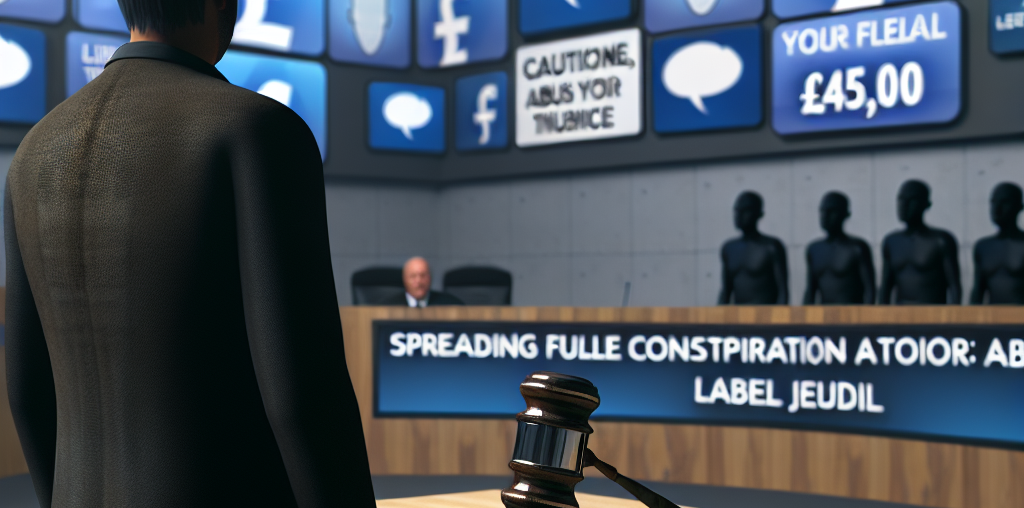Manchester Arena Conspiracy Theorist Fined £45K for Spreading Falsehoods
In a landmark ruling, a conspiracy theorist who spread baseless claims about the 2017 Manchester Arena bombing has been fined £45,000 by a UK court. The individual in question, Richard D. Hall, was accused of promoting harmful and offensive narratives related to the tragic event, which claimed the lives of 22 people and injured hundreds.
The False Narratives and Their Impact
Richard D. Hall, who runs a YouTube channel and an online platform, repeatedly questioned the legitimacy of the Manchester Arena bombing, suggesting that it was a staged event. His comments and content have been described as insensitive, disrespectful, and harmful, especially to the survivors and the families of the victims. Hall’s baseless claims sparked outrage, particularly within communities directly affected by the tragedy.
According to the court, Hall had engaged in a sustained campaign of falsehoods, using social media platforms to spread conspiracy theories. His actions caused distress to those who had already endured unimaginable trauma. Several survivors, including those who were injured in the bombing, came forward to describe how Hall’s fabrications compounded their grief and suffering.
Legal Action and Consequences
The court’s decision to impose a £45,000 fine on Hall serves as a warning to individuals who use online platforms to spread misinformation and conspiracy theories that can cause real-world harm. Hall failed to appear in court for several hearings, leading to increased scrutiny of his claims and actions. Eventually, the court found him guilty of defamation and promoting false information.
One of the key factors in the case was the testimony of the survivors, who bravely spoke out against Hall’s maligning of the tragedy. Their statements highlighted how such conspiracy theories not only perpetuate harm but also undermine the very real experiences of those affected.
Public Discontent and Call for Accountability
The case against Hall has reignited public debates over the growing spread of conspiracy theories, particularly in the wake of major tragedies. Many people believe that stricter regulations are needed to prevent such content from proliferating on social media platforms. Survivors and families involved in the Manchester Arena bombing have also called for more robust measures to hold individuals like Hall accountable for the damage caused by misinformation.
- Stricter laws governing online content may be necessary to curb the spread of misinformation.
- Social media companies have a responsibility to monitor and limit harmful content.
- Conspiracy theorists who spread baseless claims should face legal consequences for their actions.
The Bigger Picture: Combating Online Misinformation
The ruling against Richard Hall is part of a broader effort to combat the spread of misinformation on the internet. Conspiracy theories have become more prevalent in recent years, with many individuals using social media platforms to question the legitimacy of well-documented historical events or tragedies. Such falsehoods have the potential to cause significant psychological harm to victims and survivors, as well as to disturb public peace and erode societal trust.
The fine imposed on Hall underscores the importance of accountability in the digital age. While online platforms provide individuals with unprecedented access to information and the ability to share their views, they also have a responsibility to ensure that the content shared does not cause harm to others. Presenting false and harmful narratives, particularly in the aftermath of a tragedy, not only disrespects the memory of those lost but also causes further suffering to survivors and their families.
Looking Forward: What Can Be Done?
As this case demonstrates, the fight against online conspiracy theories is far from over. There’s a clear need for more stringent oversight and intervention when it comes to online platforms where such content is shared. Governments, regulators, and tech companies must work together to ensure that individuals cannot spread dangerous fictions without facing consequences.
The survivors of the Manchester Arena bombing have shown immense bravery in confronting and challenging these harmful narratives. Their willingness to speak out has played a significant role in bringing about this legal action, and their efforts remind us that the impact of misinformation is profoundly personal. Despite this victory in court, there is still much work to be done to prevent the spread of falsehoods in the future.
Conclusion: The Fine as a Deterrent
The £45,000 fine imposed on Richard D. Hall for spreading conspiracy theories about the Manchester Arena bombing sends a clear and strong message. It serves as a deterrent to others who may be considering promoting harmful and baseless claims online. In an age where misinformation can spread quickly, it is crucial that society takes steps to protect the truth and the well-being of individuals affected by tragedies.
The ruling emphasizes that spreading falsehoods about real-world tragedies is not without consequences. As the internet continues to evolve, so too must the mechanisms for ensuring that the truth remains protected and that those who seek to distort it are held accountable.

